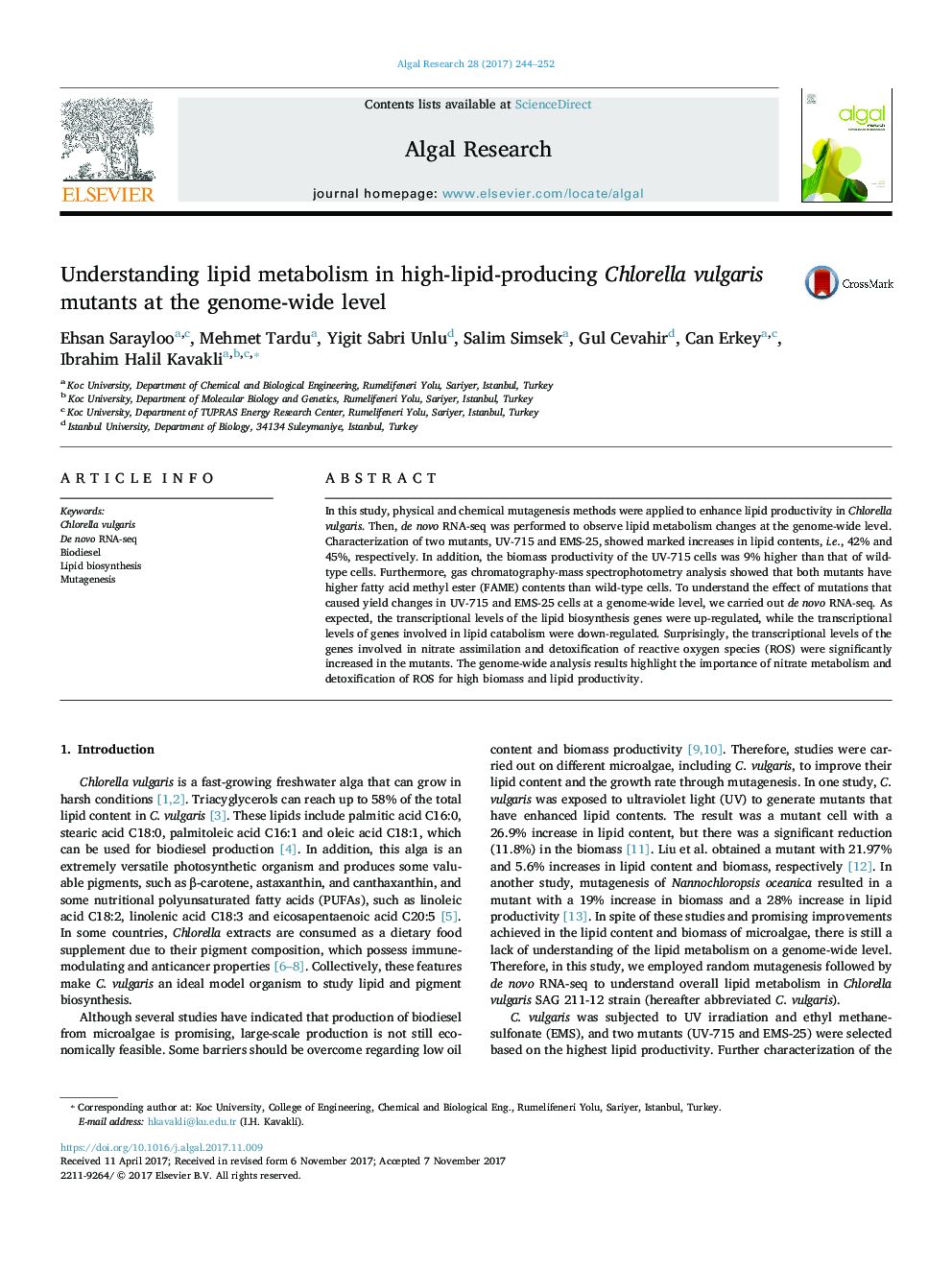| Article ID | Journal | Published Year | Pages | File Type |
|---|---|---|---|---|
| 8086238 | Algal Research | 2017 | 9 Pages |
Abstract
In this study, physical and chemical mutagenesis methods were applied to enhance lipid productivity in Chlorella vulgaris. Then, de novo RNA-seq was performed to observe lipid metabolism changes at the genome-wide level. Characterization of two mutants, UV-715 and EMS-25, showed marked increases in lipid contents, i.e., 42% and 45%, respectively. In addition, the biomass productivity of the UV-715 cells was 9% higher than that of wild-type cells. Furthermore, gas chromatography-mass spectrophotometry analysis showed that both mutants have higher fatty acid methyl ester (FAME) contents than wild-type cells. To understand the effect of mutations that caused yield changes in UV-715 and EMS-25 cells at a genome-wide level, we carried out de novo RNA-seq. As expected, the transcriptional levels of the lipid biosynthesis genes were up-regulated, while the transcriptional levels of genes involved in lipid catabolism were down-regulated. Surprisingly, the transcriptional levels of the genes involved in nitrate assimilation and detoxification of reactive oxygen species (ROS) were significantly increased in the mutants. The genome-wide analysis results highlight the importance of nitrate metabolism and detoxification of ROS for high biomass and lipid productivity.
Related Topics
Physical Sciences and Engineering
Energy
Renewable Energy, Sustainability and the Environment
Authors
Ehsan Sarayloo, Mehmet Tardu, Yigit Sabri Unlu, Salim Simsek, Gul Cevahir, Can Erkey, Ibrahim Halil Kavakli,
